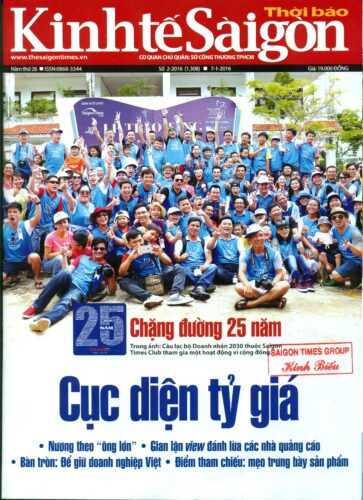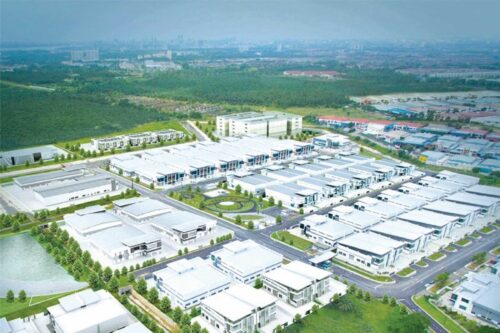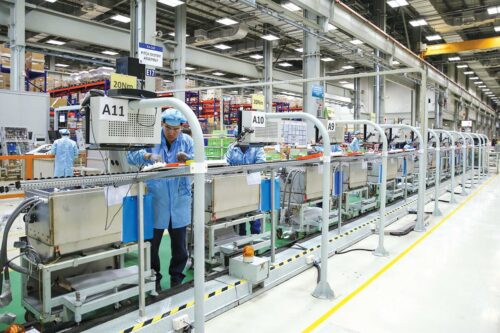Article by Mr. Dinh Hong Ky, published in Saigon Economic Times on January 7, 2016. In a society where corruption is rampant, the idea of building short-term businesses for personal gain is also inevitable. With such businesses, the operator only sees personal or short-term corporate interests without a long-term strategy to build their brand for several generations.
However, under the pressure of competition and a volatile business environment, many Vietnamese businesses have suffered heavy losses, some names have quietly left, some have been sold to foreign businesses with the possibility of continuing to exist quite unclear.

Why? In addition to some of the reasons mentioned in the article Why do Vietnamese brands easily drift away? (TBKTSG No. 1-2016), the following roundtable continues this topic through the perspectives of Mr. Dinh Hong Ky, Chairman of the Board of Directors of Secoin Joint Stock Company, Mr. Nguyen Thanh Lam, Chairman of the Board of Directors of VietEuro Company and Mr. Tran Huu Phuc Tien, Director of the Sales, Marketing & Services Training Center (SMS).
TBKTSG: Last week in TBKTSG, Mr. Nguyen Thanh Lam mentioned some of the reasons “Why do Vietnamese brands easily drift away?”. Are there any other reasons that make Vietnamese businesses easily disappear over time?

– Mr. Dinh Hong Ky: The reasons, in my opinion, can be summarized as follows: Firstly, among the entrepreneurs formed in the recent period, many come from rural areas, they themselves have just experienced the previous subsidized economic period and have not been properly trained in modern business knowledge, so their thinking is still heavily influenced by the nature of both farmers and subsidized people. Therefore, many people develop their businesses in the direction of making a quick buck. There are people who build banking networks with the sole purpose of selling to foreign countries. Or many people build brands for businesses with the sole purpose of selling shares at higher prices.
Secondly, quite a few entrepreneurs have built large fortunes thanks to loopholes in the transformation of the country’s economy, thanks to the equitization process of state-owned enterprises, or thanks to doing business based on the relationships of interest groups… rather than thanks to a systematic business model, businesses operating transparently and effectively in the true sense. At that time, it is understandable that these bosses would transform their businesses by selling them to foreign parties or wiping them out to safely withdraw.
Third, in a society where corruption is rampant, the idea of building a short-term business for personal gain is also inevitable. The owners of state-owned enterprises build their brands based on a term-based mindset. Even state-owned enterprises that have been equitized still have a short-term or self-interested mindset because simply the board of directors (BOD) or general director (CEO) also operates according to a term. Recently, people have talked about corruption in private companies when the BOD or CEO operates for self-interest rather than for the interests of shareholders. In such enterprises, the executives only see personal interests or short-term corporate interests without a long-term strategy to build their brand for several generations. Fourth, some private enterprises have built quite successful brands, but because they do not see the future in the next generation when they do not have a transfer strategy or their children do not have the mindset to follow their parents’ career, they have to give up.
TBKTSG: In recent years, we have witnessed many Vietnamese enterprises being “sold” to foreign partners for many reasons, including weak conditions and capital accumulation capacity. Are there any other reasons behind this problem?
– Mr. Dinh Hong Ky: I think like this, the majority of the current generation of Vietnamese entrepreneurs come from poor families. Now that they have escaped poverty and are satisfied with what they have, it is understandable that they do not accept the risk of withdrawing from the game. Moreover, our current situation is not like that of Western capitalist countries with civilized societies and stable market economic mechanisms over centuries that have created a generation of professional entrepreneurs who have built global brands. In Vietnam, in less than a century, businesses have had to change drastically according to the ups and downs of history. A generation of proud strong Vietnamese brands was built from the beginning of the 20th century in the French colonial years before 1954 in the North or before 1975 in the South such as Co Ba soap, Con Cop soft drinks, Hynos toothpaste, La Dalat cars, Thanh Danh tiles, Doan Cuong tires, … later all failed or were eliminated. Many entrepreneurs had to go abroad, many had to pay with their lives after the land reforms in the North or capitalist reforms in the South. Those risky lessons, those ups and downs in the history of Vietnamese enterprises have discouraged the will to progress of many entrepreneurs in their ambition to build a lasting brand in their homeland.
– Mr. Nguyen Thanh Lam: In my opinion, this is a common problem for all businesses in the world. The difference is the context, business environment and market economic policies.
The most typical example is the financial crisis of 1998 and 2008, many Vietnamese enterprises struggled, because capital and land accumulation were very limited in Vietnam for a long time. The “ghost of capitalism” creates fear and hesitation. In addition, a true entrepreneur does not necessarily have to “have the courage to get rich”, or risk “sacrificing the father’s life to strengthen the son’s life” to do things that go against ethics.
Accumulating capital based on personal savings, when will there be enough capital to do big things, to let business awareness escape the individual and petty mentality? Accumulating through the stock market is not easy, even if it is a public company. Lack of capital, lack of a life buoy to overcome when there is a period when the loan interest rate is more than 25%/year. Obviously, this is a national financial policy issue, the business perspective and vision are too conservative, too cautious, if not short-sighted of most banks.
Talking about mergers and acquisitions (M&A) – should not be understood as a takeover, big fish swallowing small fish – if sold to a decent partner, it is also normal, not necessarily a failure. In the past year, there were 36,000 M&A deals worth 4,000 billion USD in the world.
If a business wants to develop widely, it must have strong internal strength, especially management personnel, a highly skilled workforce and solid finances, or it must have strong partners to make up for the lack of capital. And that is a terrible thing for the entire business and production environment in Vietnam, because here money is the chicken, and the chicken is born from eggs that are skilled Vietnamese people. But the problem is not to sell a basket of eggs because there is a lack of a chicken to eat to save from starvation.
Tens of thousands of Vietnamese businesses die silently every year in pain and sadness. Die without a funeral to mark their respectable efforts. Does anyone really think about them?
In short, if the State Bank – the bank of all banks, and the Ministry of Finance, in this case the General Department of Taxation, have more correct and appropriate policies, then we can hope for sustainable development for businesses alongside other factors. It must be done the same everywhere.
TBKTSG: As long as the State does not consider Vietnamese enterprise brands as national assets, enterprises will not be cared for and nurtured to grow. As businessmen, what do you expect from the State so that Vietnamese brands do not drift further and further away in the current context of integration?
– Mr. Dinh Hong Ky: My point of view is that if the State wants to build truly strong Vietnamese brands and become national assets, it needs some basic factors.
That is to truly recognize and create the private economy to become the mainstay of the economy, and to have clear and strong strategies to do this.
The State needs to guide and create conditions for the private sector to build a family business model. The lesson of today’s major global brands is that they are all owned by family businesses through many generations.
For example, according to Ernst & Young’s statistics in 2014, in Europe, 85% of family businesses generate 70% of GDP, in North America, family businesses account for 90%, generating 70% of GDP, in Asia – Pacific, this rate is 85% and generating 34% of GDP…
In addition to building a fair and healthy business environment, the State must also select and create all conditions for businesses to create products and services that bring real values to society. It is impossible to evaluate businesses through revenue indicators while many companies are doing business on each other’s backs to make a profit but the real value they bring to the economy is almost non-existent. And finally, the State must create conditions and incentives for products or services that are Vietnam’s strengths such as agricultural products, seafood, coffee, handicrafts, software… in the global game.
– Mr. Nguyen Thanh Lam: Regarding the State, I don’t know if we should say much here? Because many people have said it and everything is still the same.
I want to say it briefly: The modern State is the midwife of businesses and the economy, the one who regulates traffic flows and builds democratic, healthy and scientific order. The State must be the one who sweeps the streets in both the literal and figurative sense; that is, not only leveling potholes to create good infrastructure but also cleaning up corruption, bureaucracy and harassment. The 16th President of the United States, Abraham Lincoln, said: The State must truly be by the people, for the people and of the people.
Economic policy must be clear-sighted, have a broad vision, attach importance to science and technology, attach importance to and have a plan to nurture talents and high-productivity production forces through an advanced education and training system.
As for businessmen, I think businessmen want to seek happiness for themselves and many others, including colleagues and especially customers. Businessmen need a lot of useful knowledge by constantly learning, having a heart for people, having passion and love for their products. Businessmen need courage and wisdom to overcome all challenges and unfortunate years. The world has many examples like that. We are proud of Bach Thai Buoi who dared to name one of his ships Ham Nghi and dared to compete wisely, making French water transport competitors bow in respect.


